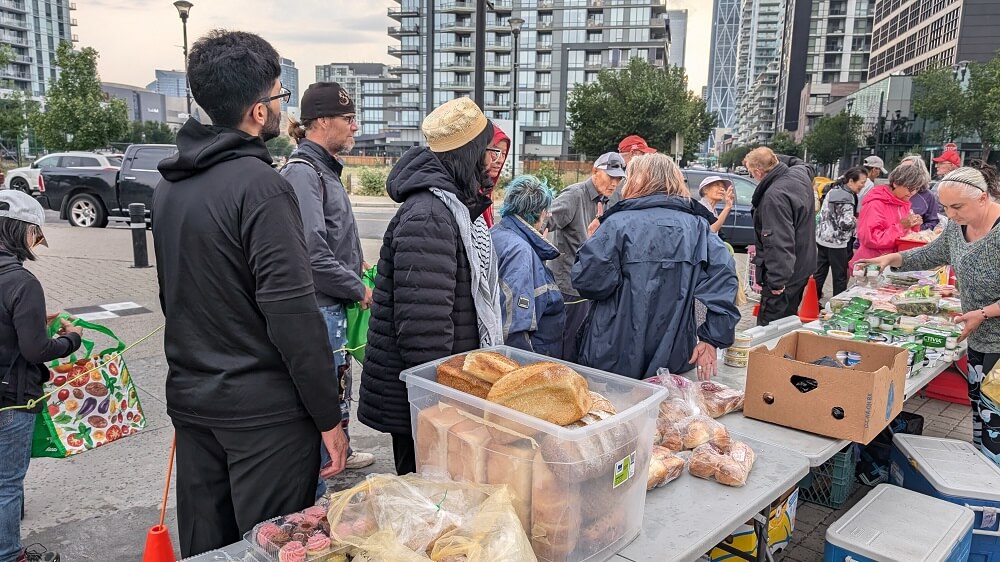Food waste and food insecurity are two sides of the same coin, and Haris Ahmad, Co-Founder and Director of Zero Food Waste Canada, is working to bridge the gap. Since 2019, his organization has rescued surplus food from businesses and redirected it to shelters and vulnerable communities, tackling both environmental and social issues. Having personally experienced food insecurity after immigrating to Canada, Ahmad is passionate about equitable food access. As food insecurity reaches record levels, Zero Food Waste Canada continues to expand its impact while advocating for systemic policy changes, such as a national free school lunch program.

Describe your charity/non-profit/volunteer work in a few sentences.
Zero Food Waste Canada rescues surplus food from local businesses and redistributes it to community organizations, shelters, and vulnerable populations. Our volunteer-driven operations help reduce waste and tackle food insecurity in Canadian cities.
What problem does it aim to solve?
We address both food waste and food insecurity by ensuring nutritious surplus food reaches people in need rather than landfills.
When did you start/join it?
We founded Zero Food Waste in April 2019, just before the pandemic heightened food insecurity challenges across Canada.
What made you want to get involved?
Having experienced food insecurity firsthand, I felt driven to address systemic waste in the food industry and ensure communities have equitable access to nutritious meals.
What problem does it aim to solve?
Our work targets the paradox of widespread food waste occurring simultaneously with high levels of food insecurity, tackling both environmental and social issues.
When did you start/join it?
I co-founded Zero Food Waste Canada in April 2019, motivated by personal experiences and a passion for social justice.
What is the current situation and your impact?
Since launching, we’ve rescued and redistributed thousands of meals, operating across several cities, including Calgary. Food insecurity has now reached unprecedented levels, highlighting the continued need for our work.
What more needs to be done?
We advocate for essential policy changes, including implementing a national free school lunch program—Canada remains the only G7 country without one. Additionally, policies addressing the rising cost of living and an increase in volunteer involvement are crucial for scaling impact.
How can our readers help?
Local food businesses can donate surplus food, individuals—especially students—can volunteer, and anyone can amplify awareness about food insecurity. Visit our website or connect with us on Instagram.
PAY IT FORWARD: What is an awesome local charity that you love?
Fresh Routes does fantastic work, providing affordable, fresh produce to underserved neighbourhoods through mobile grocery markets, helping ensure everyone has access to healthy food. Their model inspires me by directly combating food deserts and promoting community well-being.




